Trump v Clinton: Debate lessons from TV and film
- Published
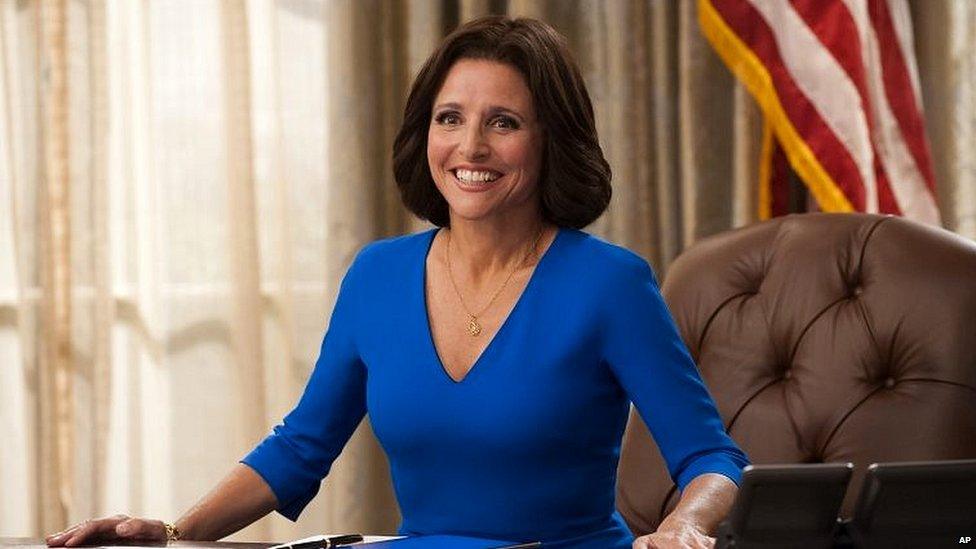
Should Hillary Clinton be watching re-runs of Veep?
TV thrives on conflict - so what can Hillary Clinton and Donald Trump learn from the world of entertainment as they prepare for Monday night's first presidential debate?
In an ideal world, all televised debates would be scripted by Aaron Sorkin. Nobody does soaring rhetoric like the author of The West Wing and The Social Network.
In Sorkin's dramatic universe there is no situation that can't be fixed by a persuasive speech. Just watch how Jack Nicholson's grizzled Colonel Jessup turns the tables on Tom Cruise's Lieutenant Kaffee, in A Few Good Men.
Jessup may be the villain - court martialled for his alleged role in the death of a soldier - but he manages to seize the moral high ground by taking apart desk-jockey Cruise's cosy assumptions about how the world works.
"I want the truth!," cries Cruise.
"You can't handle the truth!," shoots back Nicholson. "Son, we live in a world that has walls, and those walls have to be guarded by men with guns…."
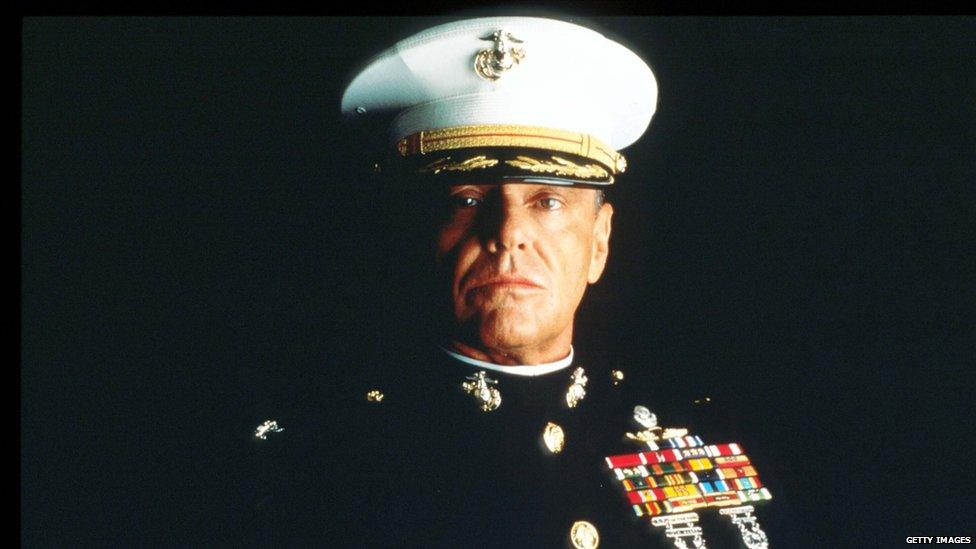
Jack Nicholson: The only grown-up in the room?
The end justifying the means, in a murky moral universe, is a constant theme in Sorkin's work. His characters endlessly refine their standpoints in shouty, but always eloquent, confrontations with each other, as they are forced to make tough choices in an imperfect world.
Imagine if presidential debates were like this. Two complicated, flawed individuals slugging it out to establish who is the real grown up in the room.
It has happened before, but candidates rarely get the opportunity, in a heavily moderated format, to really let rip. That's why the most memorable lines are nearly always throwaway asides or acidic put-downs.
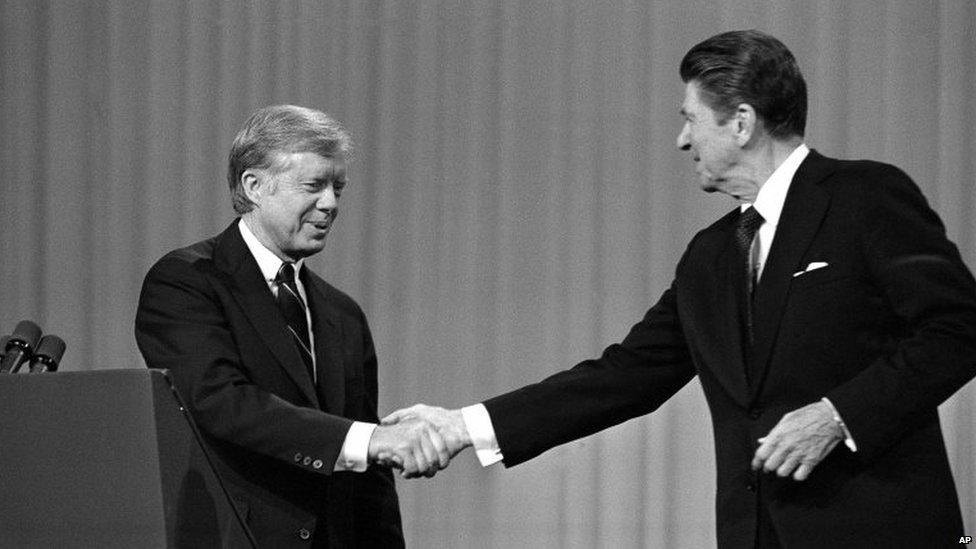
Ronald Reagan's subtle put-down of Jimmy Carter went down in history
Some are Sorkinesque in their elegance, such as Senator Lloyd Bentsen's ego-deflating assessment of Dan Quayle in 1998's vice-presidential debate.
"I knew Jack Kennedy," said Senator Bentsen, after his opponent had compared his congressional experience to JFK. "Jack Kennedy was a friend of mine. Senator, you're no Jack Kennedy."
Bentsen was able to savour the line and stretch it out for better effect because he had a hunch Quayle would compare himself to Kennedy. (We know this because the line has its own Wikipedia page, external, which is nearly as long as the one dedicated to Bentsen himself.)
But the best one-liners are usually off-the-cuff, such as Ronald Reagan's riposte to Jimmy Carter in 1980, after listening to a windy diatribe from his Democratic opponent about Medicare.
"There you go again," said Reagan simply and devastatingly.
Donald Trump fancies himself a master of the spontaneous one-liner. Part of the fascination on Monday night, will be in watching how Hillary Clinton, not a noted comedian, deals with his verbal pyrotechnics.
The Clinton camp is said to be preparing for two scenarios: Trump the serious contender, keen to show his mastery of policy, and Trump the Entertainer.
If the latter shows up she could be in trouble. Spluttering incredulity is not a good look for a candidate, as demonstrated in a 1998 episode of The Simpsons.
Scottish comic novelist John Niven was the first to point, in a piece for The Daily Record, external, how this Simpsons episode, Trash of the Titans, skewers Trump's brand of populism and shows how hard it is for conventional politicians like Clinton to deal with in a public forum.

Pumped up with self-righteous indignation at "big government," Homer decides to run for sanitation commissioner, building his campaign around wild promises and outrageous smears.
"I can not believe what I am hearing," says Homer's opponent Ray Patterson, a stolid public servant of many years standing.
"Then you'd better turn up your hearing aid, Pops," shoots back Homer. It gets a big laugh.
"Pops? I am only two years older than you," splutters Paterson.
"Do you want Old Man Patterson here with his finger on the button?," says Homer, the crowd now eating out of his hand.
"What button? What the hell are you talking about?"
"Ooh, which button? Where am I? Who took my false teeth?"
The crowd is now howling with laughter and Patterson knows he is beat.
"Alright, fine. If you want an experienced public servant vote for me. But if you want to believe a bunch of crazy promises about garbage men cleaning your gutters and waxing your car then, by all means, vote for this sleazy lunatic."
Needless to say, Homer wins by a landslide.
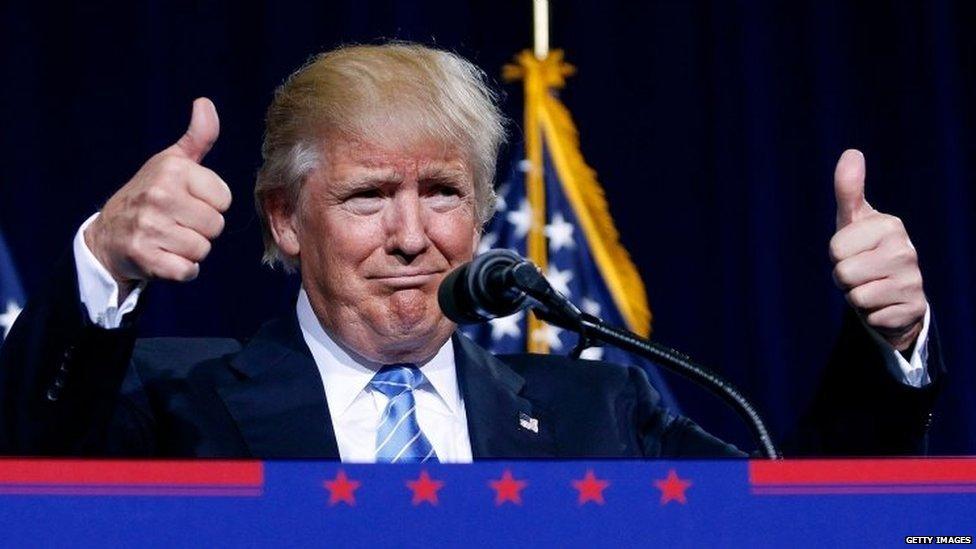
Will Donald Trump mock his opponent?
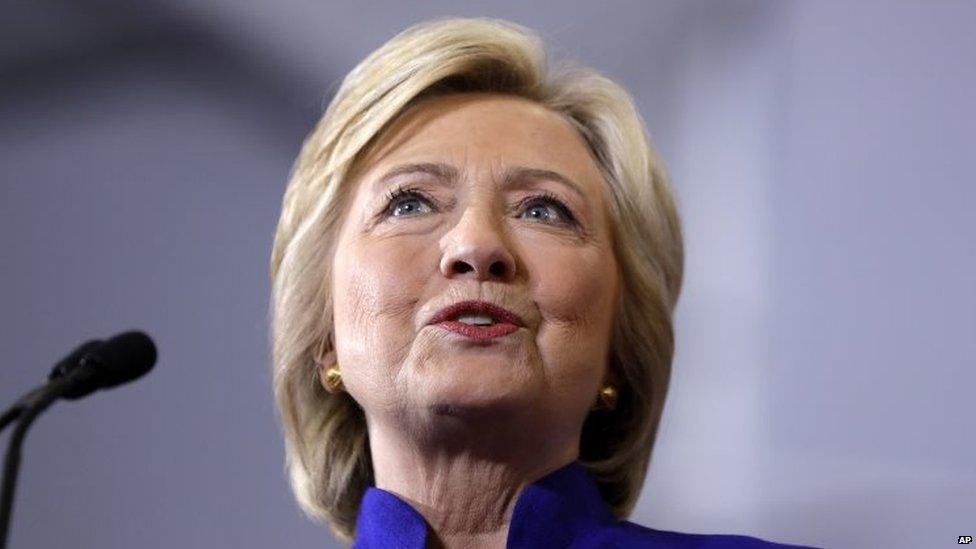
Will Hillary Clinton rise to the bait?
If The Simpsons nails what some would describe as Trump's brand of slippery, crowd-pleasing bluster, then Veep skewers what Clinton's critics see as her airless world of advisers and spin doctors.
Selina Meyer - the shallow, brittle vice-president, and sometime president, in the HBO sitcom is not a direct parody of Clinton. We never find out her party allegiance.
But plenty of writers have compared Meyer's toe-curling attempts to appeal to "average Joe" voters and lack of guiding principles beyond clinging to power to the former secretary of state's approach to politics.
Meyer's big debate moment, in season three, is one of the rare occasions where she manages to save herself from public humiliation.
She has come up with a typically vacuous campaign platform based around the "the three Rs" - Reform, Reaffirm and, well, she can't quite remember the third one.
She strides about the stage mouthing platitudes until her brain offers up another word beginning with R - Repel. This sets her off on a riff about repelling illegal immigrants and America's enemies. The third R was meant to be Renew, but this stuff seems to be going down pretty well with the audience.
"I think I've endorsed a Nazi," mutters an aide.
Rick Perry could not remember the third government department he plans to abolish if elected president - Footage courtesy of CNBC.com
This scene appears to be based on a real-life incident, when Texas Governor Rick Perry torpedoed his own presidential campaign in 2012 by being unable to recall the three government departments he had vowed to shut down. "Oops," said governor Perry.
The lesson here - if there is one - is don't attempt any feats of memory. And don't say "oops" if you forget your lines. It's not very presidential.
Finally, we come to the most important part of any debate - the jokes.
The temptation - when faced with the prospect of a wisecracking opponent like Donald Trump - is to arrive armed with some pre-prepared zingers.
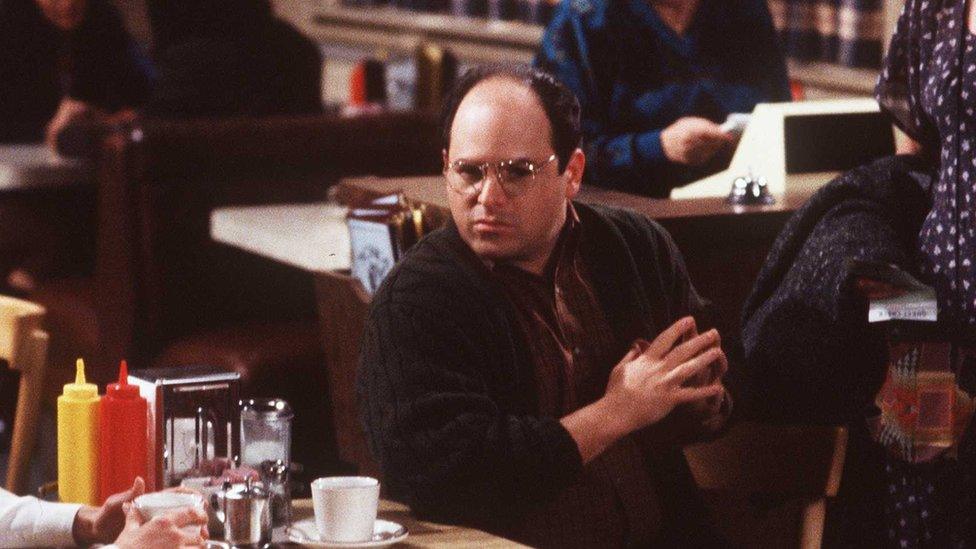
The man who crafted the perfect zinger
A 1997 episode of NBC's much-loved sitcom Seinfeld shows why this temptation should be resisted at all costs.
In The Comeback, neurotic loser George Costanza goes to extraordinary lengths to deliver what he believes is the perfect riposte after he is zinged by a colleague in a meeting.
Flying from New York to Akron on a flimsy pre-text, he recreates the exact scenario of the original zinging. Sure enough, his target takes the bait, as George ostentatiously scarfs down a bowl of shrimp, his tormentor leans across the table and tells him: "Hey George, the ocean called. They're out of shrimp."
"Well," says George, rising to deliver his long-planned coup de grace, "the jerk store called and they are all out of you."
"What's the difference," replies his tormentor, "you're their all time best-seller!" And that's the line that gets the big laugh.
Donald Trump is that guy - he showed in debate after debate during the primary season that he will always have the final word and it will usually succeed in belittling his opponent.
To find out whether this approach works in a one-to-one setting on the bigger presidential debate stage - and whether he will even attempt it - you need to tune in on Monday night.
It should be great television.

More on the election
How do you debate Donald Trump?